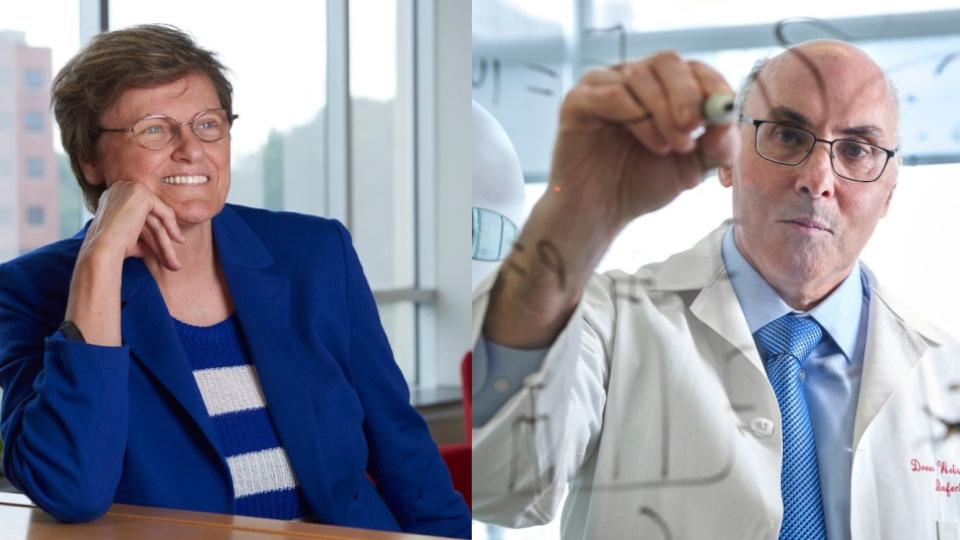mRNA scientists share Nobel prize for medicine

Katalin Karikó and Drew Weissman of the University of Pennsylvania have jointly won the 2023 Nobel Prize in Physiology or Medicine for discoveries that enabled the development of mRNA vaccines against COVID-19.
The announcement this morning from the Nobel committee at the Karolinska Institute in Sweden notes that their discoveries around nucleoside base modifications “have fundamentally changed our understanding of how mRNA interacts with our immune system.”
Their work contributed to the unprecedented, rapid development of mRNA vaccines from the likes of BioNTech/Pfizer and Moderna that underpinned the global response to the pandemic, said the committee.
The panel highlighted the work by Hungarian biochemist Karikó and immunologist colleague Weissman, who - after a chance meeting in the late 1990s while photocopying research papers - combined their research interests to explore the role of dendritic cells in the immune response.
Specifically, they noticed that dendritic cells recognise in vitro transcribed mRNA as a foreign substance, which leads to their activation and the release of inflammatory signalling molecules. They explored why this mRNA was seen as foreign, while mRNA from mammalian cells did not give rise to the same response.
In 2005, the scientists published the results of that investigation, namely that the tendency of mRNA to stimulate a response was governed by the presence or absence of altered bases within the RNA structure.
They found that the inflammatory response was almost abolished when base modifications were included in the mRNA, opening the door to the use of mRNA sequences as vaccines and drugs. In further studies published in 2008 and 2010, Karikó and Weissman showed that the delivery of mRNA generated with base modifications markedly increased protein production compared to unmodified mRNA.
“The laureates contributed to the unprecedented rate of vaccine development during one of the greatest threats to human health in modern times,” said the committee.
Since the pandemic, the potential of mRNA has also been explored in the development of vaccines for other diseases, as well as for therapeutic applications in areas like oncology.
“Katalin Karikó and Drew Weissman are brilliant researchers who represent the epitome of scientific inspiration and determination. Day after day, Dr Weissman, Dr Karikó, and their teams worked tirelessly to unlock the power of mRNA as a therapeutic platform, not knowing the way in which their work could serve to meet a big challenge the world would one day face,” said Penn President Liz Magill.
“With the truest devotion to their field, they’ve already promised they will not stop here, and that is the greatest inspiration of all.”













